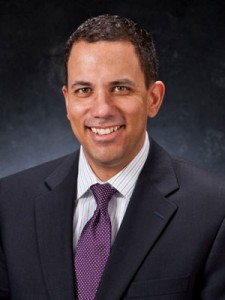ON ETHICS: Snitches get stitches, except in Wisconsin
By: NATE CADE//February 4, 2015//

While I imagine there are few things more difficult for a lawyer than having to report a client to the court because of misconduct, members of the Wisconsin bar are obliged to do so.
State Supreme Court Rule 20:3.3, Candor to the Tribunal, outlines a lawyer’s duty to the court. The major premise of the rule is easy to understand in its requirements: A lawyer’s duty to the court is greater than his or her duty to the client. The rule even contemplates a lawyer “snitching” on the client.
Importantly, Rule 3.3 specifically indicates that it trumps Rule 1.6, Confidentiality.
But are there limits to the snitching we are expected to undertake? While the rule is easy to read and understand, the application of the rule is not so clear.
I recently encountered a situation in which a court had to apply the rule, in part, to another lawyer who had quit a case. The lawyer claimed withdrawal was appropriate because of a concern regarding the client’s veracity.
There was no evidence that the client had lied. Rather, the lawyer believed the client might lie in the future and therefore believed that withdrawal was appropriate to protect the sanctity of the lawyer’s obligation to the court under Rule 3.3.
I believe withdrawal was the lawyer’s choice, as there was no evidence of a lie occurring. Indeed, if the lawyer had knowledge or even a strong belief that a lie had occurred, he or she owed a duty to the court and the opposition to correct those omissions as best as possible. But the lawyer candidly admitted there was no personal knowledge that a lie had taken place, and thus, no duty to correct it.
The court disagreed and based the decision, in part, on the fee agreement that discussed withdrawal, but the court did so in terms of language contained in the document about what was in the best interest of the client.
But the court misapplied the law by believing that the fee agreement trumped the Supreme Court Rules. The rules are sacrosanct, and by caving into the lawyer’s argument that withdrawal with no consequence was permissible, the court devalued the rules.
Interestingly, Wisconsin’s rules go a step further than ABA Model Rules. Here, not only do we owe a duty to the court under 3.3, but we also owe duties to other third parties under Rule 1.6.
The ABA Model Rule provides that a lawyer “may reveal” client confidences to the extent necessary to prevent serious bodily harm or financial injury. But the cold-hearted souls who drafted Wisconsin’s original rules 30 years ago opted to require a lawyer reveal under the same circumstances. In essence, Rule 1.6 specifically tells us to snitch.
But will lawyer snitches “get stitches” as the popular phrase goes? Unlikely. Keith Sellen, director of the state’s Office of Lawyer Regulation, has previously indicated that no attorney has been prosecuted for turning in a client for some crime or concern covered by Rule 1.6.
Legal News
- Wisconsin opens public comment on constitutional amendment regarding election officials
- Court upholds Milwaukee police officer’s firing for posting racist memes
- FCC fines wireless carriers millions for sharing user locations without consent
- Wisconsin Supreme Court scheduled to hear oral arguments in absentee voting case
- Attorney General Kaul joins multistate coalition to defend U.S. EPA’s light-duty vehicle emission standards
- State Bar of Wisconsin names election winners
- Protests erupt on college campuses throughout Midwest, and U.S. over war in Gaza
- Newly filed report with federal court seeks Havana Syndrome transparency
- Questions of transparency, leadership responsibility linger over State Bar trust
- Firm demands $4.3M in dispute with Wisconsin client
- Chesebro among those charged with interfering in 2020 election
- FTC hits Williams-Sonoma with ‘record civil penalty’ for Made in America claims
WLJ People
- Power 30 Personal Injury Attorneys – Russell Nicolet
- Power 30 Personal Injury Attorneys – Benjamin Nicolet
- Power 30 Personal Injury Attorneys – Dustin T. Woehl
- Power 30 Personal Injury Attorneys – Katherine Metzger
- Power 30 Personal Injury Attorneys – Joseph Ryan
- Power 30 Personal Injury Attorneys – James M. Ryan
- Power 30 Personal Injury Attorneys – Dana Wachs
- Power 30 Personal Injury Attorneys – Mark L. Thomsen
- Power 30 Personal Injury Attorneys – Matthew Lein
- Power 30 Personal Injury Attorneys – Jeffrey A. Pitman
- Power 30 Personal Injury Attorneys – William Pemberton
- Power 30 Personal Injury Attorneys – Howard S. Sicula











